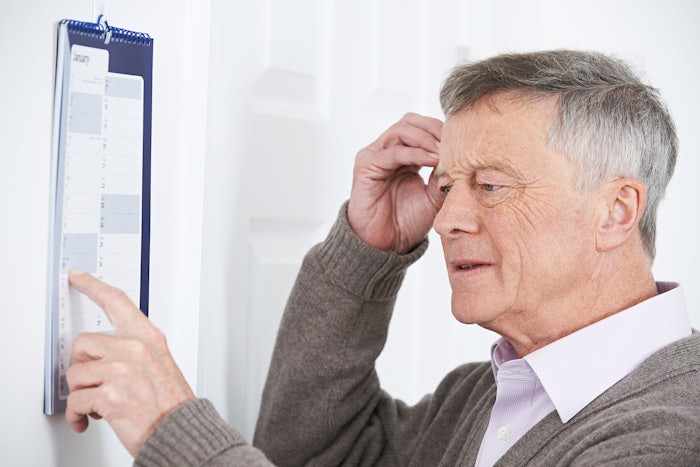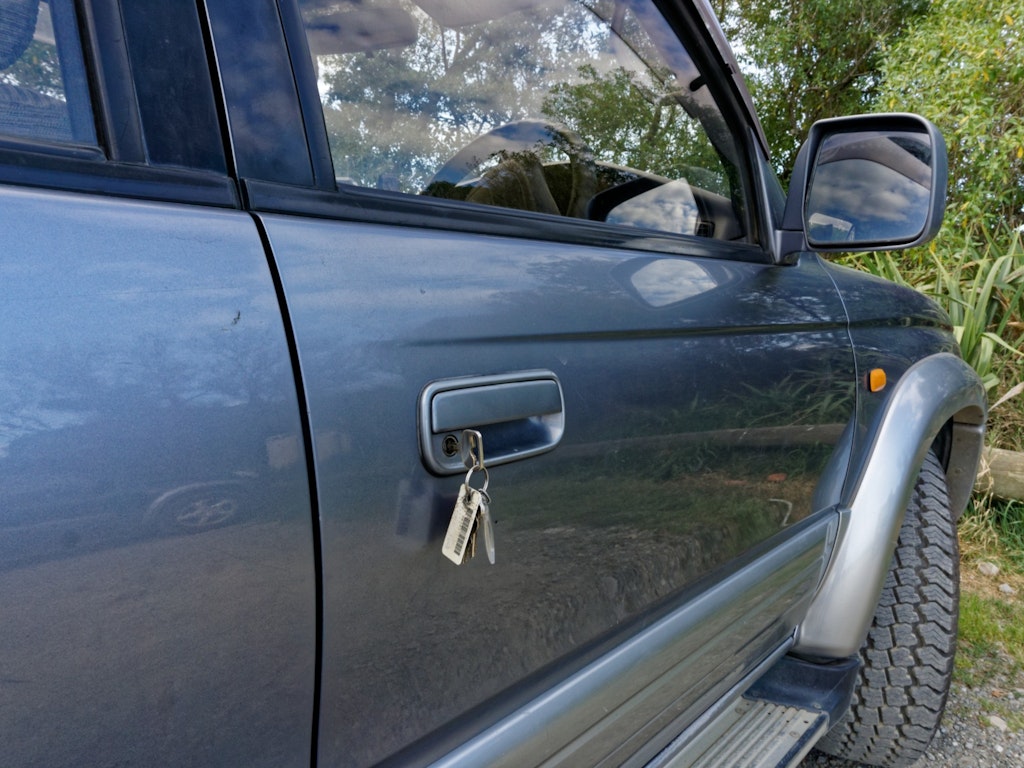What is dementia?
It may begin with forgetting where you left your car keys and eventually lead to potentially dangerous situations such as forgetting to switch off the heater or kitchen stove.

Memory loss experienced from dementia is different from ‘normal’ forgetfulness. (Source: Shutterstock)
Key points:
- Dementia is not a normal part of ageing
- Being forgetful isn’t what dementia is, even though it is commonly perceived as so by the public
- There is no cure for dementia, however, scientists have been getting closer to understanding why dementia occurs
This is a very real experience for more than 487,500 Australians living with dementia right now. With Australia’s population rapidly ageing, the prevalence of dementia is expected to increase to 1,076,000 million by 2058.
According to Dementia Australia, this disease is the leading cause of death in Australia and the leading cause of death in women.
Over 65 percent of people with dementia live within the community, and two-thirds of residents in aged care have moderate to severe cognitive impairment.
A cognitive condition
Dementia is an umbrella term for cognitive or neurological illnesses – disorders that affect the brain – that progressively impacts a person’s ability to function.
This term is used to describe changes to your brain function that impacts your memory, thinking, and behaviour.
Dementia affects a person’s mental ability and causes them to ‘forget’ things and experience problems, such as:
- Remembering birthdays, names and the day or year
- Speaking or writing
- Misplacing where you left your medication or other items
- Becoming angry or agitated
People experience dementia in different ways – you could experience some of the symptoms, many of the symptoms or all of the symptoms, and may be on a different level of severity compared to other people living with dementia.
Types of dementia
There are many different diseases that could cause dementia – over 100, in fact. Some of the main types of diseases that can cause dementia include:
- Alzheimer’s disease
The most common type of dementia, Alzheimer’s disease is a degeneration of the brain leading to problems with memory, thinking skills and performing daily tasks. - Vascular dementia
An impaired supply of blood to the brain causes a series of small strokes, which, over time, contributes to a gradual mental decline. - Lewy body disease
Accumulation of abnormal microscopic protein deposits in the brain, leading to problems with attention and alertness, hallucinations and tremors. - Frontotemporal dementia
Damage to the right and left frontal lobes (front of the brain), resulting in deterioration in behaviour, personality, language disturbances, or alterations in muscle or motor functions. - Huntington’s disease
Brain cells slowly die causing problems with movement, coordination, communication, thinking and memory. - Alcohol related dementia
Excessive alcohol consumption resulting in impacts to memory, learning and other mental functions.
Answers from people living with dementia
Hear about dementia straight from the people living with it in this great video series from Dementia Australia:
Just forgetful or do I have dementia?
Everyone becomes forgetful from time to time. But when does an ordinary memory lapse indicate something more serious?
Memory loss experienced due to dementia is different from ‘normal’ forgetfulness.
An example of ‘normal’ forgetfulness, according to Dementia Australia, is misplacing the car keys, while dementia memory loss is like forgetting what your car keys are used for.

Early signs of dementia
One of the most common early signs of dementia can be memory loss but symptoms, whether obvious or subtle, vary for each person.
Other signs of dementia may include:
- Loss of ability to go shopping, gardening or perform personal grooming
- Reduced concentration
- Confusion
- Personality or behaviour changes
- Wanting to be alone and away from loved ones
These are just a few possible early indicators that something might not be ‘right’.
Only your General Practitioner (GP) or local doctor will be able to properly diagnose dementia.
Did you know: According to Dementia Australia, on average, symptoms of dementia are noticed by families three years before a proper diagnosis is made? And your GP could have notes on your medical records about symptoms of dementia as early as five years before diagnosis.
Wanted: A cure or prevention
There is currently no cure for dementia. But a lot of hard work and funding is being put into dementia research.
The onset of the neurological disease cannot yet be stopped or reversed.
Researchers across the world have been investigating ways to cure dementia. Additionally, many experts are getting closer and closer to understanding how the disease works.
While we wait for that historic moment, being diagnosed with dementia early on can help you plan for the future.

"I'm too young to have dementia"
The term ‘younger onset dementia’ describes dementia diagnosed in people under the age of 65. The latest Dementia Australia figures reveal younger onset dementia affects about 28,800 Australians.
While this statistic is worrying, many more people are diagnosed with dementia after the age of 65 years.
But regardless of how old you are, it’s essential to know memory loss and dementia is not a normal part of ageing. To learn more about younger onset dementia, read our article, ‘What is younger onset dementia?‘
So who can help?
Dementia Australia can provide support services, education and information, as well as assist carers and families to manage the daily challenges that dementia brings.
You can also get advice and support through initiatives such as the National Dementia Helpline, call 1800 100 500.
If your, or your older loved ones, dementia behaviours become challenging, Dementia Support Australia may be able to assist you with their specialised dementia consultants.
Living at home with dementia
More and more people continue to live at home with dementia. A majority of people with dementia still live within their communities.
Sometimes it can be challenging, but it’s important not to treat a person living with dementia in their home as ‘incapable’ of living life.
They say there’s no place like home. So helping a person remain in the familiar surroundings of their home for as long as possible, whether living with dementia or not, is important.
If you or a loved one lives at home with dementia, there are people whose job involves reminding you to:
- Eat or take prescribed medication
- Bathe daily
- Switch off appliances such as the kitchen stove or heater
- Feed or care for pets
Living at home while receiving assistance is made possible through home care services. You can learn more about basic home care or Home Care Packages on AgedCareGuide.com.au.

Living in aged care homes with dementia
Many aged care homes offer full support to people living with dementia.
Some of these homes have separate dementia wings or sections, and may be described as dementia-specific.
Most of these homes have activities to help keep people with dementia engaged which you’ll see demonstrated in the video below:
To find an aged care home that caters for dementia, search the AgedCareGuide.com.au directory.
What worries you most about dementia? Tell us in the comments below.
Related content:
Dementia behaviour changes and challenges
Accessing the right dementia support
What is younger onset dementia?
The link between dementia and depression
- Your Journey:
-
What is dementia?

![Healthy lifestyle choices including physical activity, diet and social engagement may reduce or delay the impact of dementia [Source: iStock]](https://agedcareguide-assets.imgix.net/news/articles/wp/12_9_22_dementia_risks.jpg?fm=pjpg&w=80&h=64&q=65)
![There are lots of different community activities available that can help fill your retirement days. [Source: Shutterstock]](https://agedcareguide-assets.imgix.net/news/articles/wp/12_10_2021-Community-activities.jpg?fm=pjpg&w=80&h=64&q=65)
![Keeping healthy and fit can help stave off a lot of chronic health problems that tend to pop up as you age. [Source: Shutterstock]](https://agedcareguide-assets.imgix.net/news/articles/wp/12_11_2021-Top-health-concerns.jpg?fm=pjpg&w=80&h=64&q=65)
![A member of an ACAT/S can help you, and your carer, determine what kind of care will best suit your needs. [Source: Shutterstock]](https://agedcareguide-assets.imgix.net/news/articles/ACATAssessment.jpg?fm=pjpg&w=80&h=64&q=65)

![All tasks and responsibilities for an older Australian adds to their overall quality of life when receiving aged care services. [Source: iStock]](https://agedcareguide-assets.imgix.net/news/articles/wp/iStock-1182515848.jpg?fm=pjpg&w=80&h=64&q=65)


